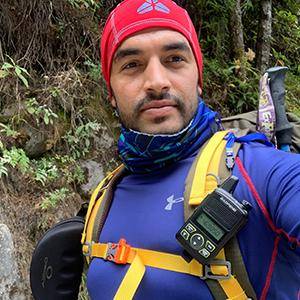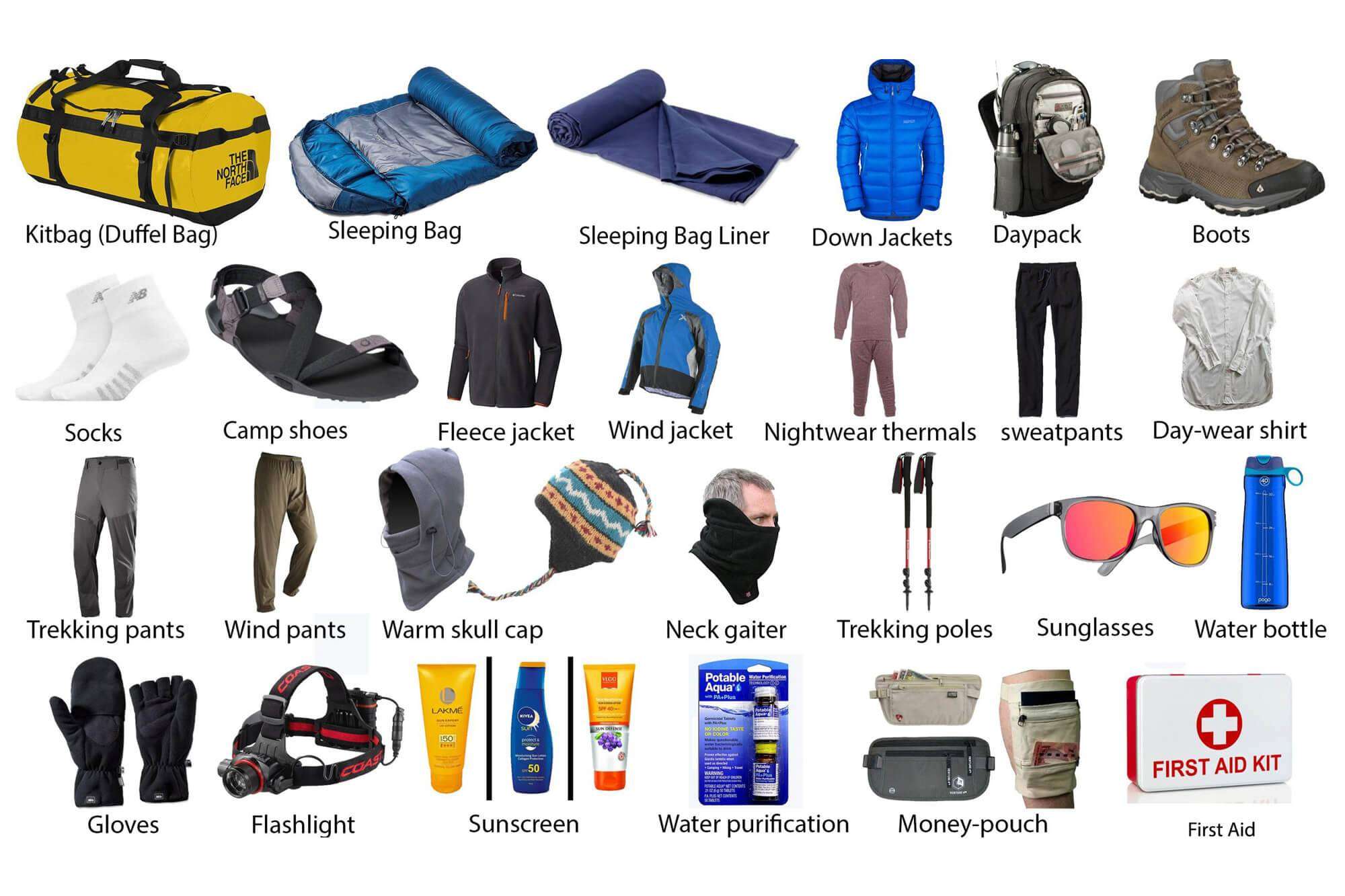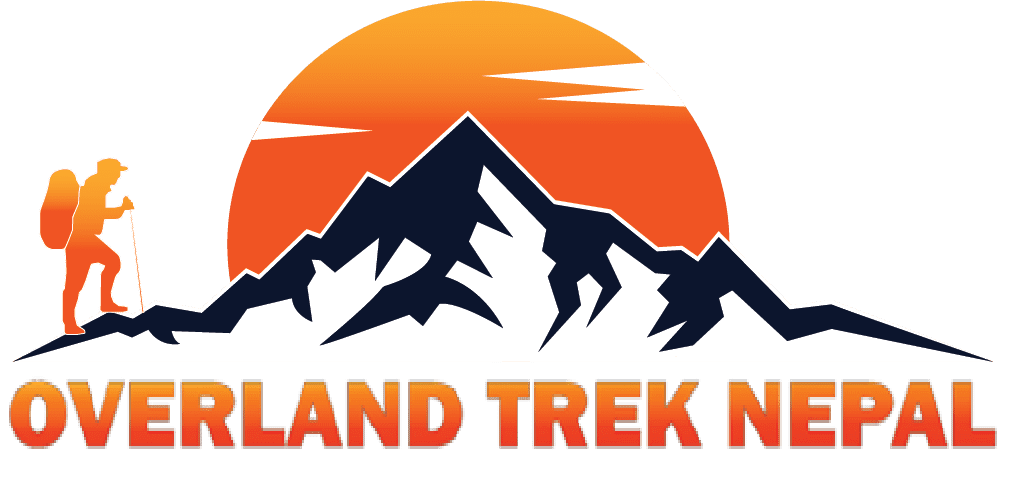The payment is encrypted and
No Booking Fee
No Cancellation Fee

Do not hesitate to give us a call, WhatsApp or email us. We are always there to help you to make your tour safe and entertaining.
Starting on a Private Everest Base Camp Trek with family and kids is an extraordinary adventure that promises breathtaking landscapes, rich cultural experiences, and unforgettable memories. Normally, a Private Everest Base Camp (EBC) Trek with family and kids will take around 17 days, you’ll journey through the heart of the Himalayas with Overland Trek Nepal, one of the best trekking companies renowned for their expertise and family-friendly services. Here’s a comprehensive Everest Base Camp Trek with Family and Kids itinerary that covers distances, altitudes, and daily activities to ensure a safe, enjoyable, and enriching journey for your family. If you are planning any Private Everest Base Camp Trek, Overland Trek Nepal is always here to help you complete your dream trip.
3. Physical Demands: While the Private Everest Base Camp Trek with family and kids is challenging, the route and daily distances are planned to be manageable for families with kids, with plenty of rest stops and time for acclimatization
A private Everest Base Camp trek with family and kids over 17 days is not just a journey to one of the most iconic locations on Earth, but also a profound family bonding experience. With careful planning, adequate preparation, and a sense of adventure, it is possible to create lifelong memories and instill a love for nature and exploration in your children. This trek is more than just a physical challenge; it’s an opportunity to learn, grow, and experience the world together.
Your adventure begins with your arrival at Tribhuvan International Airport in Kathmandu. The crew from Overland Trek Nepal will meet you at the airport and transfer you to your hotel. After check-in, take some time to rest or explore the bustling streets of Thamel. In the evening, you’ll meet your guide for a trek briefing and enjoy a welcome dinner at a traditional Nepali restaurant.
Maximum Altitude:- 1400m
Meals:- Welcome dinner
Accommodation:- Hotel Three Star Level
Early in the morning, take a scenic 30-minute flight from Kathmandu to Lukla, offering stunning views of the Himalayan peaks. Upon arrival, begin your trek with a gentle descent towards Phakding, passing through charming villages, and lush forests, and crossing suspension bridges over the Dudh Koshi River. Overnight in a teahouse in Phakding.
Maximum Altitude:- 2,800m/9,186ft
Meals:- Breakfast/ Lunch/ Dinner
Distance of Trek: – 8 km (5 miles)
Trekking Hours: – 3-4 hours
Accommodation:- Guest House / Teahouse
After breakfast, continue your trek along the Dudh Koshi River, passing through several small villages. The trail gradually ascends as you make your way to Manjo, a small village that serves as the gateway to the Sagarmatha National Park. Enjoy the serene surroundings and the hospitality of the local teahouses.
Maximum Altitude:- 2,835m/9,301ft
Meals:- Breakfast/ Lunch/ Dinner
Distance of Trek: – 6 km (3.7 miles)
Trekking Hours: – 4-5 hours
Accommodation:- Guest House / Teahouse
Today’s trek is more challenging as you ascend to Namche Bazaar, the bustling market town of the Khumbu region. The trail involves crossing several suspension bridges, including the famous Hillary Suspension Bridge. As you approach Namche, you’ll catch your first glimpse of Everest and Lhotse. Namche Bazaar is a vibrant town with shops, cafes, and a lively atmosphere.
Maximum Altitude:- 3,440m/11,286ft
Meals:- Breakfast/ Lunch/ Dinner
Distance of Trek: – 10 km (6.2 miles)
Trekking Hours: – 5-6 hours
Accommodation:- Guest House / Teahouse
Namche Bazaar is the heart of the Everest region. This is your first day of acclimatization as you climb higher, your body will need to adapt to the higher altitudes due to thin air there are several vantage points in the village where you can go for an acclimatization hike. Everest Region’s finest bakeries, cafés, restaurants, shops, and the only ATM in this region can be found here.
Interact with the friendly locals or hike up to any of the vantage points for stunning views of the Himalayas, before sunrise to witness Mount Everest, Ama Dablam, Thamserku, Kongde, and Lhotse are all illuminated by the sun’s rays, during the day explore the Sherpa Culture Museum Learn about Sherpa culture and customs at the.
An upward hike from Shyangboche Airport to Everest View Hotel is a great way to acclimate while seeing Mount Everest, Thamserku, and Ama Dablam up close, hike to the Khumjung and Kunde settlements, or visit Sir Edmund Hillary’s school in Khumjung, the first school in the Everest Region and visit 400 years old Khumjung Monastery where the skull of Yeti, the abominable snowman, is said to be kept.
Maximum Altitude:- 3,440m/11,286ft
Meals:- Breakfast/ Lunch/ Dinner
Distance of Trek: – 3-4 km (2-2.5 miles)
Trekking Hours: – 3-4 hours
Accommodation:- Guest House / Teahouse
The trek from Namche to Tengboche is scenic and relatively moderate. The trail offers magnificent views of Everest, Nuptse, and Ama Dablam. As you descend to Phungi Thenga, you’ll cross the Dudh Koshi River before making a steep ascent through rhododendron forests to Tengboche. Visit the Tengboche Monastery, a spiritual center with a backdrop of towering peaks.
Maximum Altitude:- 3,860m/12,664ft
Meals:- Breakfast/ Lunch/ Dinner
Distance of Trek: – 10 km (6.2 miles)
Trekking Hours: – 5-6 hours
Accommodation:- Guest House / Teahouse
Today’s journey to Dingboche is filled with awe-inspiring landscapes. The trail descends through forests before crossing the Imja Khola and ascending to Pangboche. Continue the trek with stunning views of Ama Dablam, Nuptse, and Lhotse as you reach the village of Dingboche, where you’ll spend the night.
Maximum Altitude:- 4,410m/14,468ft
Meals:- Breakfast/ Lunch/ Dinner
Distance of Trek: – 11 km (6.8 miles)
Trekking Hours: – 5-6 hours
Accommodation:- Guest House / Teahouse
Spend the day in Dingboche for acclimatization. Take a hike to Nagarjun Hill or Chukung Valley, offering spectacular views of Makalu, Lhotse, and the north face of Ama Dablam. The leisurely pace helps the family adjust to the increasing altitude while enjoying the natural beauty of the Himalayas.
Maximum Altitude:- 5,100m/16,732fit
Meals:- Breakfast/ Lunch/ Dinner
Distance of Trek: – 3-4 km (2-2.5 miles)
Trekking Hours: – 3-4 hours
Accommodation:- Guest House / Teahouse
The trail to Lobuche is more challenging due to the significant increase in elevation. The path passes through Dughla, where you’ll see memorials for climbers who have lost their lives on Everest. The stark, rocky landscape near Lobuche is a testament to the rugged beauty of the region.
Maximum Altitude:- 4,910 m/16,105 fit
Meals:- Breakfast/ Lunch/ Dinner
Distance of Trek: – 8 km (5 miles)
Trekking Hours: – 5-6 hours
Accommodation:- Guest House / Teahouse
An early start is crucial today. The trek to Gorak Shep is relatively short but challenging due to the altitude. After a brief rest and lunch at Gorak Shep, continue to Everest Base Camp. The excitement peaks as you reach the iconic base camp, surrounded by towering peaks and the Khumbu Icefall. Return to Gorak Shep for the night.
Maximum Altitude:- 5,170 m/16,961 fit
Meals:- Breakfast/ Lunch/ Dinner
Distance of Trek: – 12 km (7.5 miles)
Trekking Hours: – 7-8 hours
Accommodation:- Guest House / Teahouse
A pre-dawn hike to Kala Patthar offers the best views of Everest. The sunrise over the Himalayas is a sight to behold, making the early wake-up call worth it. After enjoying the panoramic views, descend to Gorakhshep have breakfast take a little rest then move out to Pheriche. The lower altitude will be a relief, and the trek back offers a different perspective on the familiar trails.
Maximum Altitude:- 5,545 m/18,192 fit
Meals:- Breakfast/ Lunch/ Dinner
Distance of Trek: – 13 km ( 8 miles)
Trekking Hours: – 7-8 hours
Accommodation:- Guest House / Teahouse
trekkers will descend from Pheriche, which is at an elevation of 4,371 meters (14,340 feet), to Tengboche, at 3,867 meters (12,687 feet). This leg of the journey covers approximately 10 kilometers (6.2 miles) and typically takes about 4 to 5 hours of trekking. The path descends towards the Dudh Koshi River before ascending through rhododendrons and conifer forests. Key points along the way include Pangboche, known for the oldest monastery in the Khumbu region, and the crossing of the Imja Khola River. The final stretch to Tengboche involves a steady climb. Upon reaching Tengboche, trekkers can visit the Tengboche Monastery, attend the evening prayers, and enjoy panoramic views of Everest, Lhotse, and Ama Dablam.
Meals:- Breakfast/ Lunch/ Dinner
Distance of Trek: – 15 km ( 9.3 miles)
Trekking Hours: – 6-7 hours
Accommodation:- Guest House / Teahouse
Day 13 involves trekking from Tengboche (3,867 meters or 12,687 feet) to Namche Bazaar (3,440 meters or 11,286 feet), covering about 9 kilometers (5.6 miles) in 4 to 5 hours. The trail starts with a steep descent through lush forests of rhododendrons, fir, and magnolia, crossing the Dudh Koshi River and then ascending towards Kyangjuma. Trekkers then continue to Namche Bazaar, the largest Sherpa village and a central hub in the region. In Namche, trekkers can explore the Sherpa Culture Museum and Namche Monastery, visit the local markets and shops, and enjoy the panoramic views from the Everest View Hotel or Syangboche Airstrip.
Meals:- Breakfast/ Lunch/ Dinner
Distance of Trek: – 9 km ( 5.6 miles)
Trekking Hours: – 4-5 hours
Accommodation:- Guest House / Teahouse
On Day 14, trekkers descend from Namche Bazaar (3,440 meters or 11,286 feet) to Phakding (2,610 meters or 8,563 feet), a distance of approximately 11 kilometers (6.8 miles), usually covered in 5 to 6 hours. The trail descends steeply and passes through forests, crossing several suspension bridges over the Dudh Koshi River. Trekkers pass through Monjo and Jorsale before reaching Phakding. Along the way, they will experience picturesque views and pass through various small villages and monasteries. In Phakding, trekkers can visit local monasteries and enjoy the serene environment by the Dudh Koshi River.
Meals:- Breakfast/ Lunch/ Dinner
Distance of Trek: – 9 km ( 5.6 miles)
Trekking Hours: – 4-5 hours
Accommodation:- Guest House / Teahouse
The final day of trekking involves ascending from Phakding (2,610 meters or 8,563 feet) to Lukla (2,860 meters or 9,383 feet), covering approximately 8 kilometers (5 miles) in about 3 to 4 hours. The trail is a gradual ascent back to Lukla, passing through several Sherpa villages, including Chheplung and Ghat. Upon arrival in Lukla, trekkers can explore the bustling Lukla Bazaar, visit local shops, bakeries, and restaurants, and reflect on the journey.
The final day in Lukla is a time for celebration and reflection. Trekkers share their experiences with their guides and porters, reflecting on the highs and lows of the trek. It’s a time to express gratitude for the support and companionship of the trekking team. A farewell dinner is a common way to celebrate the end of the trek, with trekkers, guides, and porters sharing stories, laughter, and perhaps a few tears. This final day is a chance to forge lasting bonds, wish each other well for future adventures, and prepare for the flight back to Kathmandu, carrying memories and friendships that will last a lifetime.
Meals:- Breakfast/ Lunch/ Dinner
Distance of Trek: – 8 km ( 5 miles)
Trekking Hours: – 3-4 hours
Accommodation:- Guest House / Teahouse
Take an early morning flight back to Kathmandu. The afternoon is free for relaxation, shopping, or exploring more of Kathmandu. In the evening, join a farewell dinner with a cultural show to celebrate your successful trek.
Meals:- Breakfast/ Dinner
Distance of flight: – 30-35 minute
Accommodation:- Three Star Level Hotel
After breakfast, you’ll be transferred to Tribhuvan International Airport for your flight home. Depart Nepal with unforgettable memories and a sense of accomplishment, having shared this extraordinary journey with your family.

By preparing appropriately and respecting the local culture and environment, your family and kids can have an unforgettable adventure on the Private Everest Base Camp Trek with Overland Trek Nepal.
Note: The above lists are the common gear you need for the trek. However, the gear also depends on which season are you trekking. Consult with our trekking expert to know more about trekking gear.
Yes, the Everest Base Camp Trek can be suitable for families and kids, provided they are in good health and have some prior trekking experience. It’s important to plan the trek with sufficient acclimatization days and consider the physical and mental readiness of the children. Hiring a guide and porter can also help manage the trek better.
The best time to do the Everest Base Camp Trek with family and kids is during the pre-monsoon (March to May) and post-monsoon (September to November) seasons. These periods offer stable weather, clear skies, and moderate temperatures, making the trek more comfortable and enjoyable.
When trekking with kids, pack essential items including sturdy hiking boots, warm layers for cold nights, lightweight clothing for daytime trekking, down jackets, rain gear, and sleeping bags. Additionally, bring sunscreen, hats, sunglasses, a first aid kit, snacks, entertainment items (books, games), and any necessary medications. It’s also advisable to carry some extra comfort items for the kids.
To ensure the safety and well-being of kids on the trek, acclimatize properly by taking regular rest days, stay hydrated, and follow a gradual ascent. Monitor for symptoms of altitude sickness and be prepared to descend if necessary. Hiring an experienced guide who is knowledgeable about the trail and altitude sickness can provide added security. Ensure kids are comfortable, warm, and adequately fed throughout the trek.
